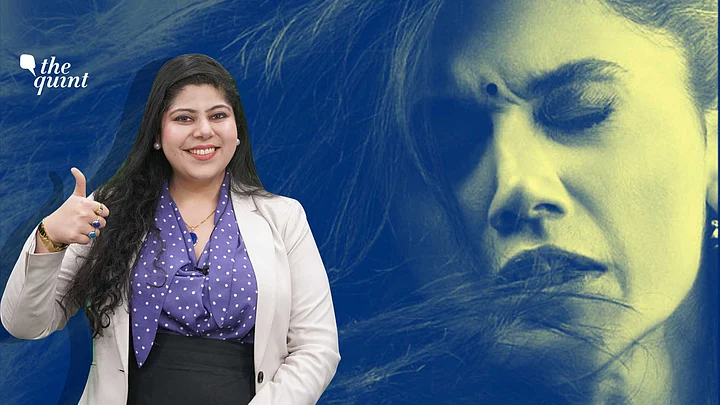Amrita’s (Taapsee Pannu) life has a routine. A very specific tightly knit routine. She wakes up, opens her front door to collect milk, picks up the newspaper, makes chai, shuts off the husband’s alarm, serves him chai as he lazily rubs his eyes, checks on the mother in law, has a quiet moment sipping from her cup of morning tea, clicks a picture from her phone as the day breaks, smiles at her neighbour, packs the husband’s lunch, runs after him as he scurries to his car, carrying his wallet, bag, tiffin and then catches her breath.
Click on the player below to listen to the full podcast.
This routine of hers is shown to us so many times that by the end of it, we have it memorised in our heads. In fact, the routine is followed even the morning after the ‘incident’ i.e. when Amrita’s husband Vikram (Pavail Gulati) slaps her. It is a singular definitive slap and it happens as unthinkingly and normally as a muscle memory reaction. The husband is upset so some people hover around him. Others are awkward because it happened in front of a house full of guests. But everyone was supposed to move on and they did until they realised that Amrita hasn’t.
Thappad is the story of a woman who refuses to let go and move on. It’s about a woman who holds her own because that slap is not just a physical act of aggression but part of a larger, more toxic mentality where these ‘little’ things aren’t supposed to affect a marriage.
Directed by Anubhav Sinha, who has also written it along with Mrunmayee Lagoo Waikul, Thappad’s strength lies in its quiet moments. When Amrita takes exception to her husband’s behaviour, there are many ways her decision is perceived. “Ek thappad? Ek thappad hi toh hai (One slap? It’s only one slap)” - even with their best intentions in mind, the best of people around her fail to see what that single incident meant. As Amrita tries to make them all understand that it was never about how many times she was hit, or how brutal the violence, but just that it happened so normally.
Sinha’s hold rarely slips as we slowly process what is happening on the screen. Just like the audience, everyone around Amrita is trying to slowly understand and figure out the situation as well as their own response to it.
The cast, lead by Taapsee Pannu, does an exemplary job. Pannu is beautifully restrained; she displays a rare understanding of her character’s exacerbated emotional and physical state. Her relationship with her father, played by Kumud Mishra, constitutes some of the most heartwarming moments of the film. Mishra, a consummate performer himself, is convincing as the doting father faithfully being the wind beneath his daughter’s wings.
Pavail Gulati too is astonishingly good despite his difficult role. He is a man clearly in the wrong but not a completely black character and so the vulnerability that he portrays makes him more relatable. The ensemble cast with Maya Sarao, Ratna Pathak Shah, Geetika Vidya Ohlyan, Tanvi Azmi, Dia Mirza, Naila Grewal, Manav Kaul and Ram Kapoor are excellent without exception.
Thappad doesn’t lecture; there is no unnecessary palaver so we acquiesce to see credit and sense in Amrita’s case. It simply lays threadbare the truth of everyday sexism that most of us are complicit in promoting.
Thappad also sheds light on other more important questions: What does it really take to keep a family together? Just a silent acceptance of all that is unfair? And is it the responsibility of just the woman to do so? Even as the end credits roll, there are various versions of the incident that one is likely to dwell on. What if the husband had immediately apologised? What if he was a habitual offender? Thappad will stay with you long after it’s over and that is a testament to its compelling storytelling.
A tale of a quiet resolve masterfully woven around the sexism rampant in Indian homes, Thappad is a must-watch.
